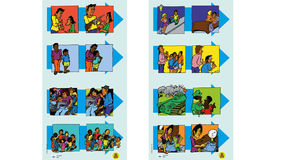
Contact situations
Game details
If you have played this game please help inform other people by giving a review.
Don’t hesitate, share your feedback and help others to pick the right games. Tell us how it was and how the children reacted? Or do you have any advice for other players, a fun variation, a possible improvement?
![]()
We very much appreciate your effort in writing the review.

Game details

Game details

Game details
Cookies saved